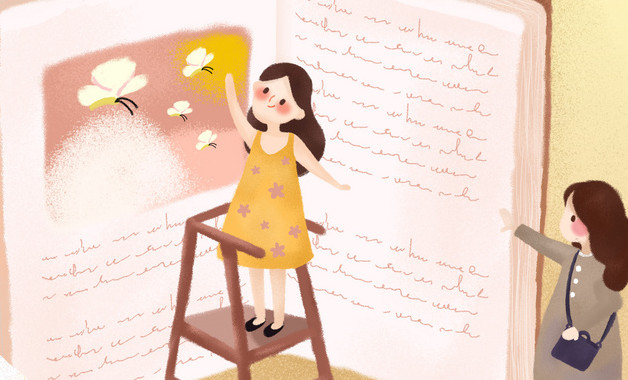【导语】蝇王读后感怎么写好?本文精选了3篇优秀的蝇王读后感范文,都是标准的书写参考模板。以下是小编为大家收集的蝇王读后感,仅供参考,希望您能喜欢。
- 目录

【第1篇】蝇王英语读后感
蝇王英语读后感
当品读完一部作品后,相信大家都增长了不少见闻,需要回过头来写一写读后感了。那么读后感到底应该怎么写呢?下面是小编为大家收集的蝇王英语读后感,欢迎阅读与收藏。
first and foremost, as far as i am concerned, in exploring the breakdown into savagery of a group of boys free from the imposed moral constraints of civilization and society, lord of the flies dramatizes a fundamental human struggle: the conflict between the impulse to behave morally and the impulse to indulge in violence. the first set of impulses might be thought of as the “civilizing instinct”, which encourages people to work together toward common goals and behave peacefully; the second set of impulses might be thought of as the “barbarizing instinct”, or the instinct toward savagery, which urges people to rebel against civilization and instead seek anarchy, chaos, despotism, and violence.
what is more, i will present my opinion about the two main characters: ralph and jack.
ralph is the athletic, charismatic protagonist of lord of the flies. elected the leader of the boys at the beginning of the novel, ralph is the primary representative of order, civilization, and productive leadership in the novel. ralph’s power and influence over the other boys are extremely secure at first. however, as the book progresses and the group succumbs to savage instincts, ralph’s position declines precipitously as jack’s station rises. ralph’s commitment to civilization and morality is strong, and his main wish is to be rescued and returned to the society of adults. for much of the novel, ralph is simply unable to understand why the other boys would give in to base instincts of bloodlust and barbarism. the sight of the hunters chanting and dancing is baffling and distasteful to him.
jack, the strong-willed, egomaniacal boy who is the novel’s prime representative of the instinct of savagery, violence, and power, is the antithesis of ralph. from the beginning of the novel, jack desires power above all other things. the first time he encounters a pig, he is unable to kill it. but jack soon becomes obsessed with hunting and devotes himself to the task, painting his face like a barbarian and giving himself over to bloodlust. the more savage jack becomes, the more he is able to control the rest of the group. by the end of the novel, jack has learned to use the boys’ fear of the beast to control their behavior, giving golding a chance to explore how religion and superstition can be used as instruments of power. jack’s love of authority and violence are intimately connected, as each enables him to feel powerful and exalted.
furthermore, i will tell you two themes i have found in this novel.
the important theme of the novel is the conflict between two competing impulses that exist within all human beings: the instinct to live by rules and to value the good of the group on the one hand; and the instinct to gratify one’s immediate desires, to act violently to obtain supremacy over others, and to enforce one’s will on the other hand. the conflict might also be expressed as order vs. chaos, reason vs. impulse, law vs. anarchy, or in any number of other ways, including the more generalized good vs. evil. throughout the novel, the instinct of civilization is associated with goodness, while the instinct of savagery is associated with evil. generally, the novel portrays the instinct of savagery as far more primal and fundamental to the human psyche than the instinct of civilization. moral behavior, in golding’s view, is often merely a forced imposition of civilization, rather than a natural expression of human individuality. when left to their own devices, the novel seems to argue, people will become cruel, wild, and barbaric. this idea of innate human evil is central to lord of the flies.
another theme is loss of innocence. as the boys on the island progress from well-behaved, orderly children who hope to be researched to cruel, bloodthirsty hunters who have no desire to return to civilization, they naturally lose the sense of innocence that they possessed at the beginning of the novel. the painted savages in chapter 12 who have hunted, tortured, and killed animals and human beings are a far cry from the simple children swimming in the lagoon in chapter 3.but golding does not portray this loss of innocence as something that is done to the children; rather, it results naturally from their increasing contact with the innate evil and savagery within themselves.
last but not least, i also find out plenty of symbols from this novel. the conch shell is the first important discovery piggy and ralph make on the island, and they use it to summon the boys together after they are separated by the crash. as a result, it becomes a powerful symbol of civilization and order. the signal fire burns on the mountain, and later on the beach, to attract the notice of passing ships that might be able to rescue the boys. so it becomes a symbol for the boy’s connection to civilization. the beast, which frightens all the boys, stands for the primary instinct of savagery that exists within all human beings. piggy is the most intelligent, rational boy in the group, and his glasses represent the power of science and intellectual endeavor in society.
as people always could not face their own evil, so they made the tragedy happen again and again. the boys’ awareness of modern democracy in the cultivation of civil society has undergone a process of rapid decline of time. its root lies in the degeneration of human nature and the separation of rational judgments and moral conscience.

【第2篇】2022《蝇王》读后感作文
完全自由的社会,是人心的释放还是文明的崩坏?还好绝对自由怎样都无法完全实现,所以这种困境不值担心,不过小说《蝇王》用一种不一样的形式去揭示了最有可能发生的结果。
作为诺贝尔文学奖得主威廉·戈尔丁最知名的一部小说,《蝇王》是一部非常典型的反乌托邦寓言。故事展示了一群坠落孤岛的孩子一步步从团结走向文明失落的道路,其结果令人唏嘘又令人后怕,整部小说几乎讲述了人类从文明退化到野蛮,从天真迈向邪恶的全过程,不是耸人听闻,而是确有可能发生在文明时代的暴行。
故事中4个主要人物分别代表了领袖、智者、愚者和反派,而其他孩子代表了民主而自由的民众。故事永远从领袖按部就班指挥工作开始,虽然领袖有着绝对领导权和号召力,但实际维持现状的却是隐藏在领袖背后的智者,智者千虑必有一失,《蝇王》中的一失正是来自他们的不强势与平分权利上,面对心智未全的孩子,如果你不能抓住他们的关注点,那无异于领袖失去民心,尽管你仍然致力于为民服务的事业,实际地位却岌岌可危,没有强硬的手腕,那离民主的恶性爆发也仅差一个理由,无论这个理由多狭小永远会被居心叵测之人利用,而愚者的愚蠢是恰好成为有心之人最好的武器,《蝇王》中愚者的愚笨或者说是善良使他被蝇王的“附体”,反派正是利用这点,配上民众的恐惧与对当权者不作为的不满,成功翻身,威逼利诱站稳脚跟,形成某种集权式的铁腕政权,只不过反派完成了一次从文明社会走向野蛮的退变,文明向前进化可能需要几千年,但向后倒退只需一瞬间。文明的倒退不需要什么准备,也许放任自由就是一种倒退,不想承担责任,只愿消耗权利,于是最后形成的只能是乌合之众。民主决议不会永远正确,这才是人性有趣的地方。
小说选取半大孩子作为主角是它最独特的地方。孩子代表着单纯、天真,那是他们没有释放内心能量,也没有接触成人世界的时候,人心如白纸,此时画上什么颜色都是最显眼的,也是最不可磨灭的,永远不要忽略一个孩子的学习能力,也不要放任他们肆意生长,这可能是这本书对于我们最大的教育意义。至于孩子的恶,我是不信人生来即恶的,只是所处环境与自身所能达到的素质的局限罢了,反正我小时候遇到的事和看到的人都向我展示了一种现象,孩子永远都愿意毫无保留的去交一个朋友,除非有外力给他施加了什么作用。
小说并不冗长中间却有令人乏味的地方,反复展现政治斗争和玩乐心理,却只字不提没有大人的困惑与无助,一只海螺代表文明,但所有人都忽略重回文明的方法又令人不解,难道这个岛屿是他们梦寐以求降落而不是意外坠落的地方?能理解叛逆期的孩子总喜欢做些摆脱束缚的事情,偶遇荒岛自己做主一定是令人着迷的,可一个平台,一座山头,可玩过了过家家似的打猎,就一点没有厌倦枯燥荒岛生活的折磨吗?最最令我不解的是,不知道原文如此还是译者笔力有限,我实在是觉得文字的力量特别苍白,是故意降低孩子带来的震撼还是有什么东西译文表达不出来?反正有几句话翻译的不像中文。

【第3篇】《蝇王》读后感600字
人性的探索——《蝇王》读后感
看完文学作家威廉·戈尔丁创作的《蝇王》后,我感触很深。
故事讲述的是在一场战争中,当疏散儿童的一架飞机途经一座荒芜人烟的小岛时,遭到了袭击。飞机坠毁了,大人们都在这次空难中不幸遇难,唯有一飞机的孩子侥幸生存。在没有大人,没有现代科技的情况下,孩子们又能做些什么来生存呢?
孩子们的领袖,也就是本作的主角,是一头耀眼金发,举止优雅,自信乐观的少年——拉夫尔。然而随着唱诗班在杰克的带领下一次次和野兽进行血腥地厮杀并获得胜利之后,原本不属于这个年纪孩子的兽性本能开始膨胀。人类千年积累下来的社会文明不禁推敲,兽性与人性的冲突也逐渐显露了出来。小岛不再和平安定,杰克与拉夫尔也从此立党两派,相互对峙。
小说中的一个人,一个孩子的行为更值得我们的思考。他叫西蒙,当感到恐惧的孩子们为“野兽”的事情争论不休的时候,西蒙这个“瘦小却挺有精神”的小孩发现了所谓“野兽大概就是我们自己”的真理,却遭到了众人的唾骂。为了弄清“野兽”的真相,他决定到山顶看个究竟,在中途休息时偶见被当做贡品爬满苍蝇的野猪头。神情恍惚中,西蒙仿佛看见一个硕大的苍蝇之王对他说明了“野兽”作为人性的一部分,并预言了他会被众人杀死的下场。到了山顶,西蒙发现大家所畏惧的“野兽”其实是一个飞行员的尸体,于是不顾虚弱的身体下山去告诉大家,却被众人误认为被“野兽”而杀害。这是懂得真理的人必定的下场吗,对西蒙的死,孩子们却依旧遗忘,不再追究。西蒙的死,也就代表了真理之死。
故事的结局,并不是那么大快人心。一艘军船恰好登陆了这座岛,拯救了孩子们。不过大家的童心都已不复存在。多多少少他们都杀过人,他们的双手早已不干净,拉夫尔也不断在死亡的边缘徘徊。由此看来,真正的野兽正是人类本身,一切的毁灭,都是人性的泯灭。
“海螺”“组织”“希望”……在这座小道上,一切的文明之火正在不断的消失,人性也在不断地受到考验。在这座小岛上,也许是在更遥远的未来,文明的进化亦或是退化,恐怕只是根据环境相对而言罢了。在这座小岛上,孩子们在思考生存,也在思考人性。
这本书给我的感触很深,关于人性的探究,既一针见血,又富有哲理。一切的恐惧,都来源于未知,人性的探索,终将不断持续下去。


